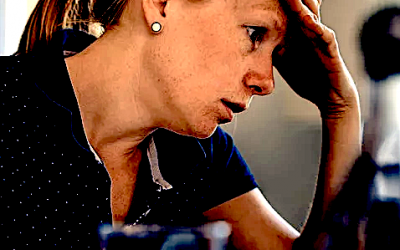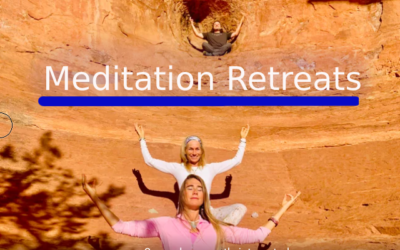Before the pandemic we were in the middle of a teen mental health crisis – with girls at its epicenter.
Since 2010, depression, self-harm and suicide rates have increased among teen boys. But rates of major depression among teen girls in the U.S. increased even more – from 12% in 2011 to 20% in 2017. In 2015, three times as many 10- to 14-year-old girls were admitted to the emergency room after deliberately harming themselves than in 2010. Meanwhile, the suicide rate for adolescent girls has doubled since 2007.

Rates of depression started to tick up just as smartphones became popular, so digital media could be playing a role. The generation of teens born after 1995 – known as iGen or Gen Z – were the first to spend their entire adolescence in the age of the smartphone. They’re also the first group of teens to experience social media as an indispensable part of social life.
Of course, both boys and girls started using smartphones around the same time. So why are girls experiencing more mental health issues?
Mining three surveys of more than 200,000 teens in the U.S. and U.K., my colleagues and I were able to find some answers.
The screens we use
We found that teen boys and girls spend their digital media time in different ways: Boys spend more time gaming, while girls spend more time on their smartphones, texting and using social media.
Gaming involves different forms of communication. Gamers often interact with each other in real time, talking to each other via their headsets.
In contrast, social media often involves messaging via images or text. Yet even something as simple as a brief pause before receiving a response can elicit anxiety.
Then, of course, there’s the way social media creates a hierarchy, with the number of likes and followers wielding social power. Images are curated, personas cultivated, texts crafted, deleted and rewritten. All of this can be stressful, and one study found that simply comparing yourself with others on social media made you more likely to be depressed.
And, unlike many gaming systems, smartphones are portable. They can interfere with face-to-face social interaction or be brought into bed, two actions that have been found to undermine mental health and sleep.
Are girls more susceptible than boys?
It’s not just that girls and boys spend their digital media time on different activities. It may also be that social media use has a stronger effect on girls than boys.
Previous research revealed that teens who spend more time on digital media are more likely to be depressed and unhappy. In our new paper, we found that this link was stronger for girls than for boys.
Both girls and boys experience an increase in unhappiness the more time they spend on their devices. But for girls, that increase is larger.
Only 15% of girls who spent about 30 minutes a day on social media were unhappy, but 26% of girls who spent six hours a day or more on social media reported being unhappy. For boys, the difference in unhappiness was less noticeable: 11% of those who spent 30 minutes a day on social media said they were unhappy, which ticked up to 18% for those who spent six-plus hours per day doing the same.
Why might girls be more prone to unhappiness when using social media?
Popularity and positive social interactions tend to have a more pronounced effect on teen girls’ happiness than boys’ happiness. Social media can be both a cold arbiter of popularity and a platform for bullying, shaming and disputes.
In addition, girls continue to face more pressure about their appearance, which could be exacerbated by social media. For these reasons and more, social media is a more fraught experience for girls than for boys.
From this data on digital media use and unhappiness, we can’t tell which causes which, although several experiments suggest that digital media use does cause unhappiness.
If so, digital media use – especially social media – might have a more negative effect on girls’ mental health than on boys’.
Looking ahead
What can we do?
First, parents can help children and teens postpone their entry into social media.
It’s actually the law that children can’t have a social media account in their own name until they are 13. This law is rarely enforced, but parents can insist that their children stay off social media until they are 13.
Among older teens, the situation is more complex, because social media use is so pervasive.
Still, groups of friends can talk about these challenges. Many are probably aware, on some level, that social media can make them feel anxious or sad. They might agree to call each other more, take breaks or let others know that they’re not always going to respond instantly – and that this doesn’t mean they are angry or upset.
We’re learning more about the ways social media has been designed to be addictive, with companies making more money the more time users spend on their platforms.
That profit may be at the expense of teen mental health – especially that of girls.
Jean Twenge has received speaking honoraria from for-profit and non-profit entities for presenting research.
She is also the author of The Narcissism Epidemic: Living in the Age of Entitlement, and iGen: Why Today's Super-Connected Kids Are Growing Up Less Rebellious, More Tolerant, Less Happy--and Completely Unprepared for Adulthood--and What That Means for the Rest of Us
Everything You Need to About Short Term Memory But Forgot to Ask
Short-term memory has several key characteristics and limitations, especially when it comes to interruptions: 1. Limited capacity: Short-term memory can typically hold only about 7 (+/- 2) items at a time. This limited capacity makes it vulnerable to disruption when...
Trading Psychology and How to Improve Yours
Trading psychology is a critical aspect of successful investing that often goes overlooked by novice traders. Understanding the psychological factors that influence trading decisions can be the difference between consistent profits and devastating losses. In this...
The Evolutionary and Psychological Challenges of Stock Trading
Stock trading is a complex activity that challenges our cognitive abilities and emotional control. Despite the potential for significant financial gains, many individuals struggle to succeed in this arena. The reasons for these difficulties are deeply rooted in our...
How the Oura Ring Revolutionizes Sleep Tracking Compared to Other Fitness Trackers
In the ever-evolving world of wearable technology, the Oura Ring has emerged as a game-changer, particularly in the realm of sleep tracking. This sleek, unobtrusive device is redefining how we monitor our health and wellness, offering a level of insight that many...
Why You Should Go On A Meditation Retreat
Finding moments of true peace and stillness can seem like an impossible task. The constant barrage of notifications, deadlines, and social obligations can leave us feeling drained, anxious, and disconnected from ourselves. This is where meditation retreats come in -...
100 Best Audiobooks on Behavioral Economics, Psychology, Meditation, Self-improvement
100 top non-fiction audiobooks on behavioral economics, psychology, meditation, self-improvement 1. Thinking, Fast and Slow by Daniel Kahneman 2. Atomic Habits by James Clear 3. The Power of Habit by Charles Duhigg 4. Nudge by Richard H. Thaler and Cass R. Sunstein 5....
Top 22 Best Audiobooks Focused on Mental Health and Self-improvement
With the huge selection of audiobooks on mental health and self-improvement, it can be a difficulty finding a few books that are highly recommended. Below is a list of the most popular and effective books for psychological betterment. 1. The 7 Habits of Highly...
“The Art of Stealth: How Viet Cong Sappers Cultivated a Mindset of Invisibility”
A Viet Cong sapper was a highly trained and elite commando unit that operated during the Vietnam War. Role and Tactics - Sappers were specialized units that conducted covert operations, infiltrations, and attacks on enemy positions. - Their primary missions included:...
How PTSD Was Cured Four Times in 5 Hours
This case study shows how a non-drug intervention can be successfully used to cure PTSD in a Vietnam veteran in under 5 hours. 'Carl, our pseudonymous client, met criteria for at least one Diagnostic and Statistical Manual of Mental Disorders (DSM IV) Criterion A...
How the Lion’s Gate Portal Can Benefit You
The Lion's Gate Portal, particularly on days like August 8th, offers a unique opportunity for personal growth, regardless of one's belief in its astrological significance. This period combines elements of positivity, the placebo effect, and manifestation practices,...
Greatest Advert of All Time – How The Cadbury Gorilla Became a Drumming Sensation That Revolutionized Advertising
This advert has been named "The Best Ad Ever". It turned an entire company around from a disaster -- and is the most memorable ad ever. Here's the breakdown: 1. Declining sales - After a salmonella outbreak, Cadbury's had to recall 1 million chocolate bars. It costs...
The 5-Day Re-Invent Meditation Retreat in Sedona, Arizona
Nestled in the heart of Sedona, Arizona, a transformative experience awaits those seeking to reconnect with their inner selves and tap into the powerful energies of the Earth. The 5-Day Re-Invent Meditation Retreat offers a unique blend of Kundalini Yoga, vortex...
Benefits of Journaling
Journaling is a powerful tool for coping with grief and the complex emotions that come with losing a loved one. Here are some ways a journal can help navigate the grieving process: Provides an Outlet for Emotions Grief often brings a whirlwind of intense feelings like...
How to Get Over the Death of a Service Dog like a Vietnam Veteran in 78 minutes.
This is an excerpt about a Vietnam veteran that got over several traumatic memories and one of them was about how he got over the death of his service dog, Rex, by using a framework for reconsolidating (rewriting) memories. By using this strategy, 'Clinical...




























